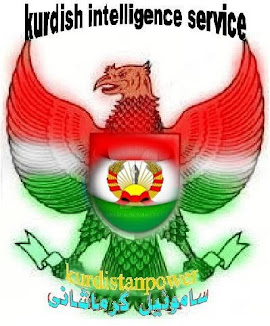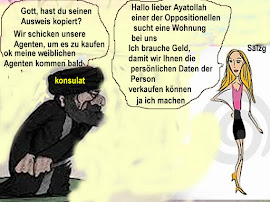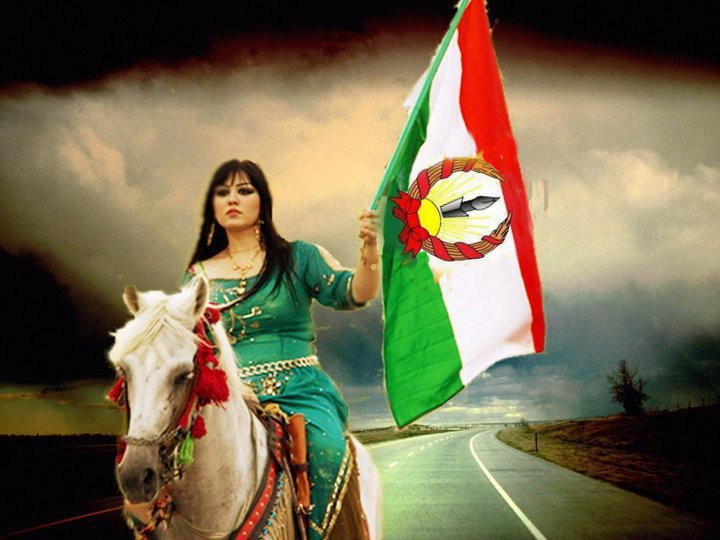Syrian Kurds appeal for help to prevent fall of Ain al-Arab
An appeal from Syrian Kurds went unheard amid the clamor of the [Turkish] elections. In Syria, where there is a masterpiece imbroglio of fronts within fronts, alliances with the enemy and animosity against allies, it becomes nearly impossible to decipher what is going on when the Kurds get involved too.
Around Kobani [Ain al-Arab], which is opposite to the Turkish town of Suruc near the Mursitpinar border crossing, unnerving developments have been taking place since March 17. On one side there is the People's Protection Units (YPG) of Rojava [west Kurdistan] and on the other side, the Islamic State of Iraq and al-Sham (ISIS), which has been defying al-Qaeda leader Ayman al-Zawahri who is backing Jabhat al-Nusra as al-Qaeda’s Syria bulwark. ISIS is launching attack after attack to capture Kobani, which is a critical link of the Kurdish autonomous region of three cantons. ISIS initiated its offensive against Kobani, which it wants to rename as “Ain al-Islam," by executing 24 people, including two children, at Sheyoh.
Did anyone mobilize?
To prevent Kobani from falling, the YPG called on all of Kurdistan to mobilize. I asked Zuhad Kobani, an external relations official of the Democratic Union Party (PYD), the most prominent political actor of Rojava, if anyone had answered their appeal. He said the only concrete support comes from the Kurdistan Workers Party (PKK). The Patriotic Union of Kurdistan (PUK) and Goran in Iraq said they are ready provide any help needed. A committee to support Rojava was established at Sulaimaniyah in northern Iraq, but the Iraqi Kurdistan government did not go beyond cliche declarations of solidarity. Abdul Hakim Bashar, the leader of the Syrian Kurdistan Democratic Party, supported by [Kurdistan Regional Government President Massoud] Barzani, said they won’t fight under the YPG flag. Massoud Barzani, who wants to maintain good relations with Turkey and who even refuses to open the Semelka crossing, won’t find it easy to support the YPG.
Why Kobani?
Kurds, determined to decide their own course of history, are disrupting the ISIS ambition to expand the boundaries of their Raqqa emirate all the way to the Turkish border. ISIS had attacked Kurdish regions many times but were repelled. ISIS, which laid a siege from three flanks of Kobani last Tuesday [April 1], launched an artillery attack from Zor Mughar, not far from the Tomb of Sueliman Shah and suffered many casualties.
The PYD killed 12 Azeris in ISIS ranks in an ambush at Kendal, east of Kobani. Their Kurdish origin commander Abu Muhammed was also killed in the same ambush. But the YPG, although in control of the hills around Sirrin where Arabs live, could not prevent ISIS attacking with tanks from capturing two grain silos. Kobani controls one of the crossings to Turkey, as well the road from Raqqa to Membic, al-Bab and Aleppo.
ISIS wants to reach Carablus and Membic from Raqqa but cannot use the road controlled by the YPG. ISIS is getting reinforcements from Raqqa and putting the squeeze on Kobani from Tal Abyad that it took over from the Free Syrian Army (FSA) through deception. Villagers say ISIS has told them to leave or their houses will be looted.
FSA with the Kurds this time
The fall of Kobani will give strategic superiority to ISIS and make Rojava more vulnerable. Zuhad Kobani explained, "As the town of Kobani was the first place Kurds took over on July 19, 2012, it has a psychological significance. If ISIS succeeds in capturing Kobani, then the Jazeera and Afrin cantons will be vulnerable. Morale will plummet."
Meanwhile, an interesting alliance is in the making. FSA elements that used to consider the YPG as an extension of the Bashar al-Assad regime, are now fighting in the same ranks with the Kurds at Kobani. Arabs, calling themselves "Ahrar Raqqa," who defected from ISIS and joined the YPG, are now fighting against al-Qaeda with the Kurds. Only last year there were FSA units in the battles against the YPG at Serekaniye and in sieges of Kobani and Afrin. But all the lines got muddled with the battles against ISIS at the end of 2013. Kurds were the ones who gave medical help at Afrin to FSA elements who were wounded in clashes with ISIS. Cephet-ul Akrad [the Kurdish Front], which is under the FSA umbrella, cooperates with the YPG when it is the Kurdish issue at stake. In today’s clashes they, too, are with the YPG.
Mission impossible for Afrin
YPG spokesman Redur Xelil, when announcing their mobilization, said, "If they support us, we can clear the entire road from Kobani to Jazeera.” A YPG fighter told Al-Monitor they could clean all the roads to Afrin of the ISIS presence, which would mean ending the geographical separation between Kobani and Afrin. But the PYG’s entering into battles in Arab and Turkmen regions could provoke local resistance. It will be impossible to hold a line linking the two Kurdish areas. Ruhad Kobani agrees. “There is a long distance between Kobani and Afrin. Although there are some Kurdish villages, it won’t be easy to link the two cantons.”
In December, when the YPG took on ISIS at Tel Hamis and Tel Brak near Qamishli, it was opposed by the Tay, Cabur and Shamma tribes. Despite the threats posed by ISIS to the region, the winds can easily turn against the YPG. Such a plan would be a “suicide mission,” especially in Turkmen areas.
Read more: http://www.al-monitor.com/pulse/security/2014/04/isis-kurd-syria-fighting-fall-kobani-ain-al-arab.html##ixzz3E4YURcCi



















.jpg)






































Inga kommentarer:
Skicka en kommentar